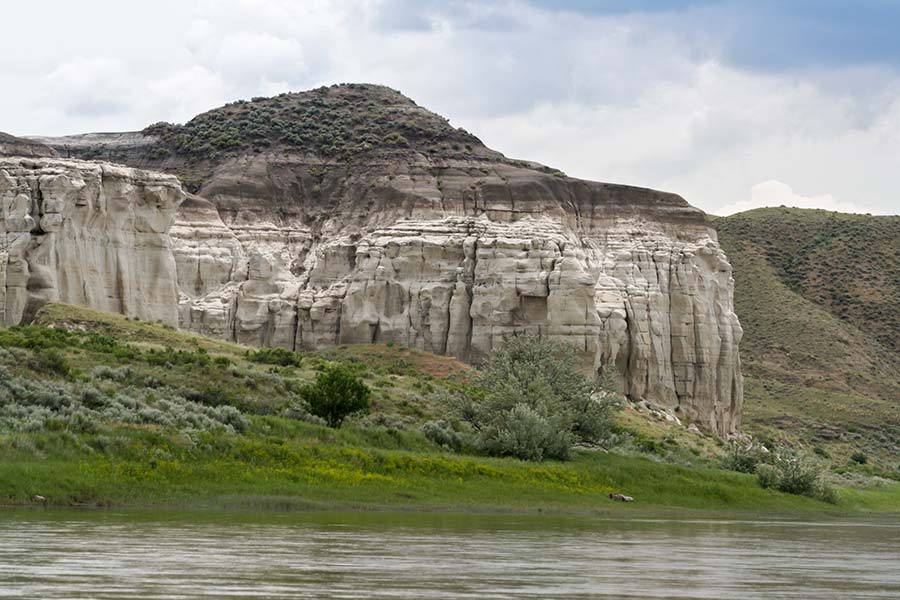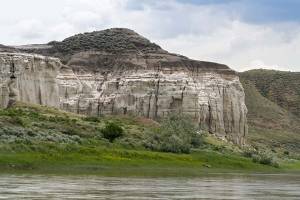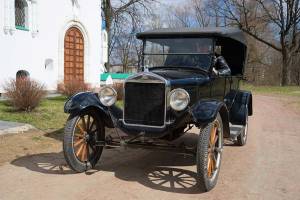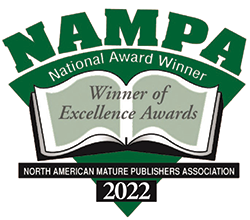By Shirley Tollaksen
As I reach the end of my septuagenarian decade, I ponder Linda Ellis’ poem, The Dash, which refers to how one spends the time between birth and death. I reflect on how I’ve spent my time on this brief journey we call life. Have I, in some small way, used my time to make the world a better place? Have I spent the precious time I’ve been allotted doing something that brings me joy? The first question will be answered by others, not me, but I can give a nod to the second as I reflect on the precious moments spent with my family and friends and immersing myself in the natural world. This journal of a canoe trip I took with friends in July 1996, on what is now the amazing Upper Missouri River Breaks National Monument, is an example of time I spent well.
It was a long drive from Wisconsin to Sully Creek State Park in North Dakota, and the little grove of trees where I finally set up my tent feels like a cozy haven. I, and my seven companions are in the same general demographic, middle age, except for Francis, who is a bit older. Bob, Judy, Bing, MaryJo, Joan, Francis, Chris, and Meta are avid paddlers who will channel Lewis and Clark as we float the same section of the Upper Missouri the explorers paddled almost two hundred years before. I am a novice with little paddling experience and feel fortunate to have been included on this adventure. I hope I won’t be a hindrance to my friend, and paddling partner, Meta.
After a good night’s sleep, I crawl through my tent flap to a burst of color streaming from behind a gray cloud. Riotous shades of orange and gold race across the azure sky. I feel a warm glow seep into my soul, and whatever the next five days hold in store; I know I will be content. I love being immersed in nature, and this is where I want to be.
That warm glow fades a bit when we make our final five-hour drive to the James Kipp Recreation Area in Montana, where we spend a mosquito-infested night next to the busy highway. The following morning, as I swat mosquitoes while waiting for our shuttle, I remind myself that nothing worthwhile is ever easy.
There’s a bus load of girl scouts ahead of us when we get to our put-in at Coal Banks Landing, which takes its name from the layer of lignite coal that passes through the hillsides along the river. When we’re finally settled in our canoes, we paddle through ten miles of lovely park-like scenery before choosing a camp site on the public land adjacent to the river.
The following morning, I’m in awe of the beauty of nature’s awakening. I gaze at the river and the sandstone ridges set against a pink, purple, and blue sky. We are just above Pablo Rapids. When we settle into our boat and Meta directs the bow into the current, we marvel at the amazing white cliffs that rise above us. At the end of the day, after maneuvering around cow pies of the open range cattle to set up tents, we take a refreshing dip, then enjoy listening to Bing read from the journals of Lewis and Clark. Lewis says it so well when he describes the Breaks as “scenes of visionary enchantment.”
Our third day we float past the tributary William Clark named the Judith River in honor of his sweetheart back home in Virginia. We fill our water containers at Judith Landing, and paddle until late in the afternoon, when we pull our canoes onto a gravel beach.
There’s a ridge above the river that looks perfect for setting up tents, but the clouds forming on the horizon indicate a brewing storm. So, our companions choose to set up on the beach, away from the cottonwoods, whose branches often break in windstorms. Meta and I, though, climb the ridge and search for a clearing away from the trees. When the sky unexpectedly clears, she and I take a hike, admiring the view of the river winding below us.
The following day, Meta and I are in the middle of the river when the wind picks up. It hits us broadside, and our canoe does a 360. I’m terrified we’re going to capsize, and we drop to our knees and struggle to get the boat under control. When we’re finally tracking toward the shoreline, my pounding heart slows, and I’m grateful for Meta’s paddling skills and patience.
After, again, maneuvering around cow pies to find spots to set up our tents, Bing exclaims he can’t wait to sink his teeth into a thick steak just to seek vengeance on the bovines. We wander through the sweet, pungent odor of the sage brush to explore the homestead of a bachelor who lived in that idyllic space until he could no longer ride horses and had to move into town. It makes me sad to think of how hard it must have been for him to leave this beautiful, wild place he called home.
Early the next morning I carefully move the zipper, so as not to wake the others, and step out to gaze at the other five tents nestled in the sage brush. They look settled and peaceful, as if they were meant to be there.
I hike up a rise to get a better view of the river. It’s another glorious morning. The air is cool and dry, and the sky is clear. It won’t be long, though, before the sun clears the ridge and starts to warm the air. By early afternoon, we will sweat and resenting its intensity.
For the next hour I walk the ridge, drinking in the beauty of this wonderful place. When I return, the others are up and busy breaking camp. I grab my camping shovel and sneak into the sagebrush. I’m in the middle of my morning constitutional when a small plane passes about 200 feet (60.96 m) above me. It’s a weird feeling to be so exposed in such a compromising position. I still wonder if the pilot chuckled as he watched me squatting amidst the sage brush on that sunny day.
We finish our paddle at James Kipp Recreation Area on a lovely sunny day with a bit of a tailwind and blue skies. As we load the canoes and camping equipment and prepare to head home, we promise to stay in touch. Several of the group do just that, but I get caught up in my separate reality, and drift down life’s river, losing touch with everyone but Meta. I am forever grateful, though, for those wonderful five days on the Upper Missouri and the joy it added to my Dash. MSN










